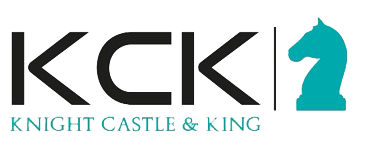If you are an entrepreneur in Kenya or any other ecosystem, you must have come across a SAFE as a vehicle for fundraising. SAFE is an accronym meaning Simple Agreements For Future Equity. The concept of a SAFE was popularized by the Y combinator Community. A SAFE as the accronym suggests is a secure way for both founders and the investors negotiate for angel or pre- seed investment without getting into the discusions of allocation of equity.
In a typical SAFE deal, the founder will promise to issue equity to the investor upon certain events taking place. These events are known as liquidity events. The most common liquidity events are;
- The company completing a successful Initial Public offer
- Merger of the company with another company;
- Acquisition of a controlling stake in the company;
- Any other transaction whose effect is to significantly alter the shareholding of the company.
While negotiating SAFEs, it is usually prudent that both the founder and the legal team understand the scope of the committments they make and which of these commitments affects the equity of the company. One common misconception about SAFEs is that a SAFE is an equity agreement. Far from it, a SAFE is not an equity agreement and holders of SAFEs are not entitled to convert their investments in the company to equity but instead they are given a right to buy the equity.In the strict sense, a SAFE is primisory agreement that the founders make to the investors for future equity upon the occurence of certain events(liquidity events). As such, should the liquidity event not happen, then the investor lays no claim to equity in the company but may be entitled to compensation for the investments made.
Another common misconception is that a SAFE works the same way as a Convertible note. A convertible note is an equity agreement and the holders of convertible notes are entitled to equity for the investments they make in a company. In a convertible note, an investor gives money to a founder as a debt and the founder pledges some shares to the investor to act as security for the money received. The investor then has the right to convert the debt given to the company into equity hence the element of conversion. For legal purposes, the investor can sue to compell the company to transfer such shares. This is however not the case for a SAFE.
Many startups in Kenya have taken up the use of SAFEs to raise capital due to the obvious advantages of setting up one. As lawyers are seting up SAFEs they do not overly negotiate the valuation of the company and the allocation granted to the investor since most companies at this stage are too young for proper valuation. As scuh, the SAFE does not allocate any shares but intead allows the founder and the investors to postpone this discussion to a future date.The negotiations of a SAFE, therefore mostly cover two important things;
- Valuation Cap- This is a value attached to the company that the investors and the company use to determine what is the allowable maximum price an investor can pay for shares in the company after a liquidity event. For instance, an investor who invests Ksh.10,000 in a company may negotiate that at liquidity, the valuation of the company shall not exceed Ksh. 100,000 so that the number of shares he may receive is calculated by dividing the Ksh.100,000 by Ksh.10,000 giving him 10 shares in the company. The higher the valuation cap the lower the shares the investor gets. As such many invetors will generally push for a lower valuation cap.
- Discount rate- Another common term for negotiation is the amount of discout an investor will be allowed at the point of liquidity. This enables the investor pay the price per share less an agreed discount. In our case of the10 shares above, if the founder allows the compay a discount of 10 % and the price of each share is 5 shillings, then the investor will pay Ksh. 50 subject to the discount of 10%. It is however important to note that the discount rate is expressed as 90% for ease of calculation. i.e Ksh 50 * 90%= Ksh 45.
A SAFE agreement therefore can contain either a discount provision without a valuation CAP( very uncommon) a valuation CAP without discount provisions( usually a common ground) or a combination of a valuation CAP and discount( mostly pro- investor). Ordinarily, prudent investors insist on a vlauation CAP since as the compay grows in vlauation, the investor gets lesser shares.( This is called dilution).
Whereas the Y combinator SAFE is accepted globally as a standard for unlocking pre-seed capital for startups, it can be risky if it is adopted without the necessary changes to reflect the requirement of Kenyan law.
For instance, section 337 of the Companies Act disqualifies the SAFE from being an allotment agreeement since it does not give a right to convert investment to equity but instead gives a right to buy. On the other hand, the application of discounts during payment of shares in the context of Kenyan law is also outlawed by section 356 of the companies Act and therefore transitioning SAFEs during liquidity requires adjustment to effect the discount provision.
In conclusion, there are many adjustments that need to be made to any SAFE agreement before it can be legally enforceable in Kenya. As you might also note, Y-Combinator also gives this disclaimer but in practice, very few entities are dutifully addressing these variances.


Leave a Reply